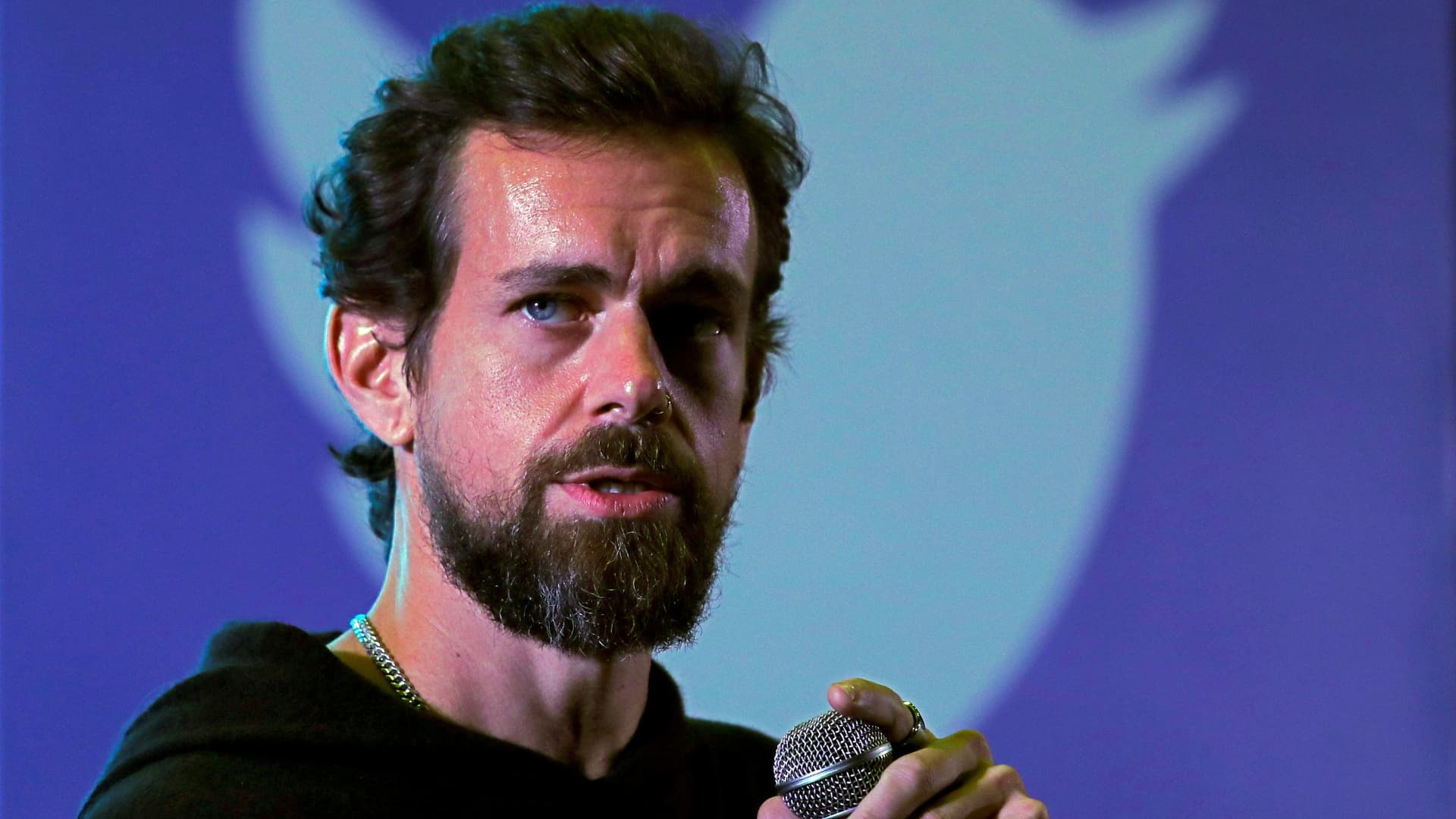
Twitter CEO Jack Dorsey addresses students during a town hall at the Indian Institute of Technology (IIT) in New Delhi, India, November 12, 2018.
Anushree Fadnavis | Reuters
A team behind the decentralized social messaging app Damus, which is backed by Twitter co-founder Jack Dorsey, said on Tuesday that Apple could remove the app from its App Store within 14 days.
Damus said in a tweet that Apple is considering the ban because of the messaging app’s integration with the Lightning Network, a payment protocol that lets users exchange bitcoin directly over the network without needing another app. On Nostr — the underlying platform Damus runs on — these types of payments are known as “zaps.”
The move could stall one plan to ease the use of bitcoin and turn it into a more convenient transnational digital currency.
In its tweet, Damus said that Apple is worried that zaps could be used by content creators to sell digital content on its platform.
Damus shared an image of its Apple App Store review warning that said that Apple “noticed that your app allows users to send ‘tips’ associated with receiving content from digital content creators with a mechanism other than in-app purchase.”
Apple has a long history of prohibiting app makers from using in-app payments to sell additional content or add-ons, unless those payments go through Apple, which takes a 30% cut.
But Damus said Apple is misunderstanding the role of zaps.
Dorsey, who is also the CEO of payments company Block (formerly Square), tweeted support for Damus, alleging that the tech giant is misunderstanding “how this feature works and what it’s for,” and called for Apple CEO Tim Cook to reconsider removing Damus from the App Store.
“It’s a critical part of the future of the internet,” Dorsey said. “It has the capacity to bring people around the world into the economy without the traditional gatekeepers.”
Dorsey is a cryptocurrency adherent, and Block has made several big bets on cryptocurrency, including a system to help people “mine” bitcoin — that’s the process of running resource-intensive computer programs to validate bitcoin transactions and create new coins.
In another tweet, Damus said that Apple contacted the team and “scheduled a call to discuss the role of zaps in more detail.”
Apple did not immediately respond to a CNBC request for comment.
Last December, Dorsey donated 14 bitcoins worth roughly $245,000 at the time to the team building Nostr, which is a decentralized social media initiative intended to not be owned by any particular leader or commercial entity. Nostr users can maintain their identities on multiple Nostr-powered apps like Damus and exchange bitcoin with each other via the Lightning network.
Dorsey, one of the co-founders and former CEO of Twitter, has been championing decentralized apps as the next evolution of social media, in which users can speak their minds and not be forced to adhere to policies of social media operators.
A lot of these platforms have no algorithms to recommend particular content — a sore point for some Twitter users who complain they’re seeing less relevant content in the “For You” tab of Twitter since Elon Musk took over. They don’t sell ads, and don’t collect and sell user data, which are the classic ways that social networks make money.
Dorsey is currently also a backer of the Bluesky messaging app, which is built on top of a decentralized networking technology called the AT Protocol. Bluesky, which is still only available to users via invitations, has grown in popularity as users flee Twitter amid a rise of hate speech and bugs, but it still much smaller than the popular messaging app, which Tesla CEO Musk bought last fall.
Watch: Twitter fumbles coverage of Ron DeSantis candidacy announcement





